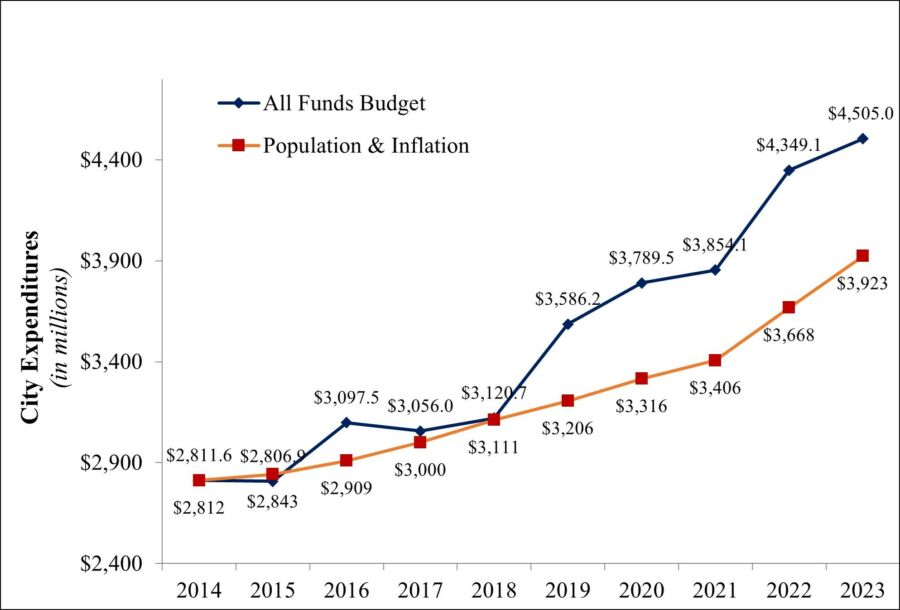A Dallas city councilmember is sounding the alarm over the city’s finances.
In Wednesday’s Dallas Morning News, Dallas city councilmember Cara Mendelsohn expressed grave concern over the “city’s ever-increasing, unsustainable budget and its effects on residents.” She continued:
“Our current $4.5 billion budget is the largest in history, and the city manager’s proposed budget for the coming fiscal year is even larger, totaling $4.63 billion…The city manager uses the words ‘structural deficit’ in the city’s five-year budget forecast. In plain language, that means we aren’t going to have enough to pay for what we are spending.”
Yikes!
Looking at the data, it’s easy to see where these concerns are coming from and how the city got in this position—far too much government spending. Consider the city’s All Funds budget growth as compared to what the city should have spent (meaning its budget limited to population growth and inflation). The difference between the two measures is considerable.
From fiscal year 2014 to 2023, the city’s actual All Funds budget jumped from $2.8 billion to $4.5 billion in total. Had the city limited its annual spending to population and inflation over that same period, its budget today would be a more modest $3.9 billion. That’s a single year (2023) difference of about $600 million and a cumulative difference (2014 – 2023) of roughly $2.8 billion.
What all of this suggests is the need for greater fiscal discipline.

Source: City of Dallas adopted budgets
This raises the question then: How might one go about righting the ship?
Fortunately, some of those answers may be found in a recent memo published by councilmember Mendelsohn. They include:
- Eliminating “ghost” FTE positions from the budget.
- Holding the line on spending. For departments whose spending grew by 50% or less over the last five years, their FY 2024 budgets would be held constant at FY 2023 levels. For departments whose spending grew by more than 50%, their FY 2024 budgets would be held constant at FY 2023 levels and be reduced by 5%. Certain public safety departments excluded.
- End funding for programs and services that are the domain of the county, state, or federal government or a transit agency.
- Remove redundant funding in the General Fund of $1 million for contingency funding.
These suggestions, and others, are critical to consider, so as to avoid the possibility of a major tax increase in the future. The time is now to get Dallas’ spending under control.